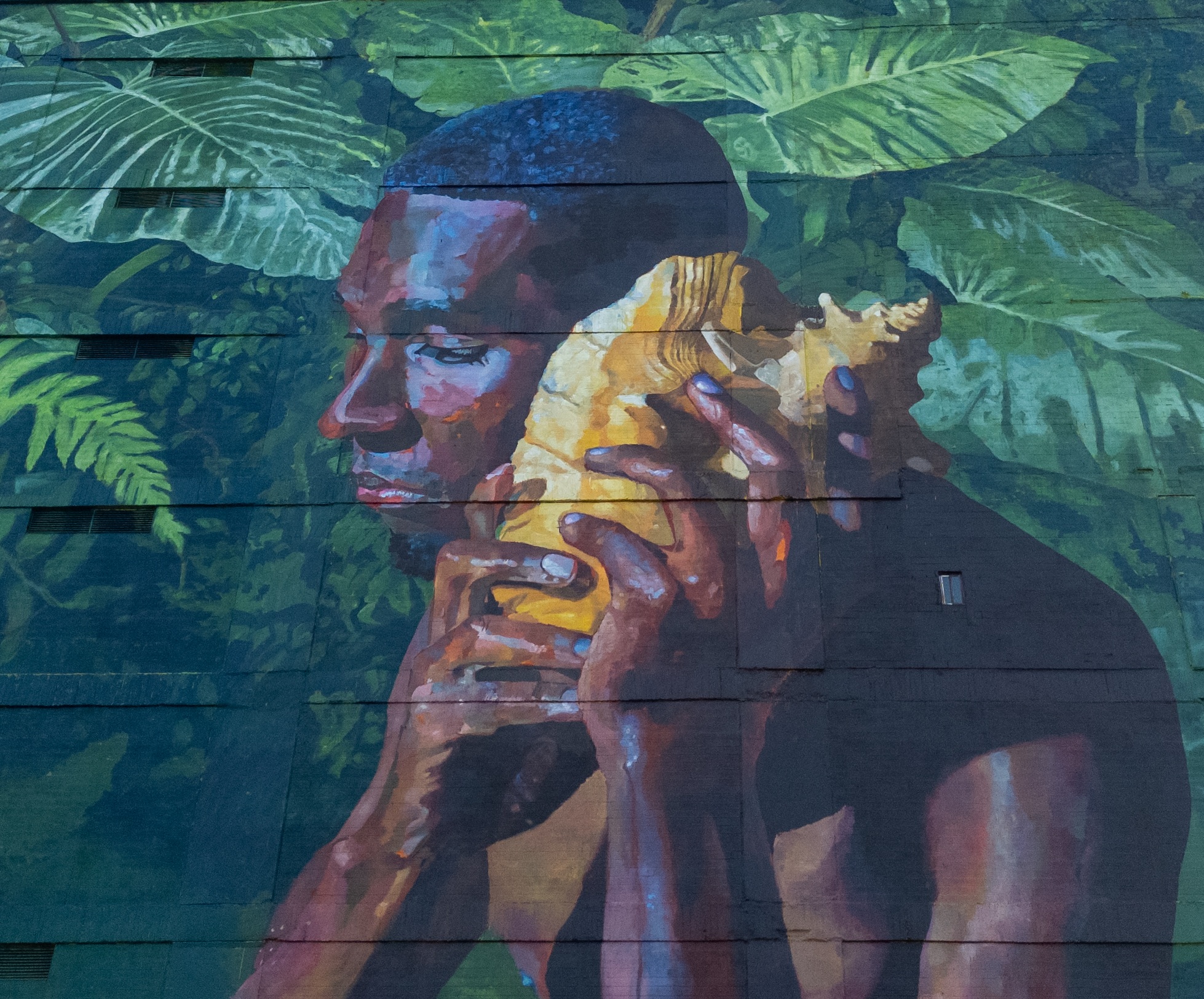Explore Issues
- Arts and Culture
- Decolonizing Thought
- Environmental Justice
- Health
- Languages and Education
- Science
- Social and Gender Justice
- Uncategorized
Filter by Country
-

Medellín Is Also Black
Colombia, 2026. Medellín is a place that has inspired songs such as “Me voy para Medellín” by El Combo de las Estrellas, “Medellín” by Madonna, and even “Medallo City” by Maluma, all of which praise its natural beauty, culture, and nightlife. However, the fantasy conveyed by the international music industry disappears just a few streets…
-

Medellín Is Also Black
Colombia, 2026. Medellín is a place that has inspired songs such as “Me voy para Medellín” by El Combo de las Estrellas, “Medellín” by Madonna, and even “Medallo City” by Maluma, all of which praise its natural beauty, culture, and nightlife. However, the fantasy conveyed by the international music industry disappears just a few streets…
-

“Re-encuentro con la Pachamama” in Bolivia: An Environmental Response to the Climate Crisis?
Bolivia’s government marked the Day of Mother Earth—adopted internationally in 2009 through a UN resolution, thanks to Evo Morales’ stewardship—by launching an event called “Re-encuentro con la Pachamama.” The event was called forth by Bolivia’s Vice President David Choquehuanca, former foreign minister (2006-2017) and Aymara union and campesino organizer in the 1980s, whose leadership was…
-

From the Amazon: Letter to Mother Earth
We share a beautiful letter from indigenous people in the Amazon in celebration of Mother Earth Day. This letter was read live by a representative of the youth network during a panel organized by the Coordination of Indigenous Organizations of the Brazilian Amazon (COIAB), broadcast live thanks to Mídia Ninja. You can access the original…
-

On Earth Day: The Fight Against Climate Disaster Investors
As we celebrate Earth Day and world leaders prepare to meet virtually for the Summit on Climate, advocates have fast-tracked their efforts to tackle investors who continue to pour billions into climate disaster. This strategy is proving to be effective as the culprits on fueling human rights and environmental violations are identified and targeted with…
-

Indigenous Women Walk More Than 1000 Miles to Protect Mother Earth
The Movimiento de Mujeres Indígenas por el Buen Vivir [Indigenous Women Movement for “Well-Being”] have been walking in the Southern Cone since March 14 to defend Mother Earth. Traveling north for 1200 kilometers (746 miles) and south for 1900 kilometers (1180 miles), women representing 36 indigenous nations in Argentina organized to walk across the country…
-

Honduras: 224 Years of Resistance of the Garifuna People
FROM THE EDITORS: The state’s offensive against indigenous communities in Honduras has been particularly cruel against the Lenca and Garifuna peoples. During the pandemic, these communities organized to help those in need and took steps to self-isolate to protect their loved ones. The state, meanwhile, ignored pleas for urgent aid and pushed forward “tourism” development…
-

Ecuador: Indigenous Party and Organizations Call to Boycott Presidential Elections
FROM THE EDITORS: Ecuador is again in turmoil. The only indigenous party, Plurinational Unity Movement Pachakutik (MUPP) List 18, born from popular resistance in the 1990s, and most national indigenous organizations have publicly called people to void their vote, “Vote Null,” in the next round of presidential elections set for April 11. (Voting is compulsory…
-

Fanesca as a Symbol of Resistance and Community Relations
Easter week is here, and it’s that time of the year when families in Ecuador and Ecuadorian immigrants in the US, Canada, and Europe prepare fanesca, one of the most intricate dishes I’ve had the pleasure to prepare and eat. It is so complex that people often gather their extended families to help in the…
-

Colectivo Epew Premiered Radio Teatro Mapuche to Rescue Oral Traditions
FROM THE EDITORS: The Epew Collective is a theater group with Mapuche and Chilean members, that works in “defense of native peoples, community art, and interculturality.” Below we reproduce an article about a new bilingual project, Radio Teatro Mapuche, which was made for children without access to internet in Mapuche territory, who have been taking…